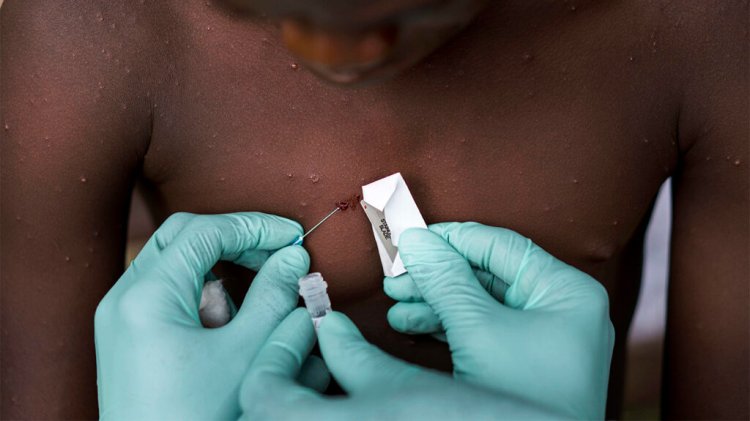Preventive methods for monkeypox are outlined by the GHS.
Five cases of monkeypox have already been reported in Ghana. They were discovered in the country's Eastern, Western, and Greater Accra areas.

The Ghana Health Service (GHS) has provided information on how Ghanaians can avoid catching monkeypox.
Dr. Patrick Kuma-Aboagye, the Director-General of the Service, revealed these steps at a news conference on Wednesday, June 8.
Avoiding skin-to-skin contact and washing surfaces of objects frequently, according to Dr. Kuma-Aboagye, will assist.
"To avoid catching the disease, avoid skin-to-skin contact with an infected person, keep your hands clean, and clean object surfaces frequently any transmission."
"If you can't prevent close contact with an infected individual, wear a mask, especially when handling towels and cloths."
He also mentioned that the sickness exhibits symptoms that are similar to a fever.
Five cases of monkeypox have already been reported in Ghana.
They were discovered in the country's Eastern, Western, and Greater Accra areas.
One of the cases, according to the GHS, was in a Ghanaian who traveled to the United States of America from Ghana.
He went on to say that the cases were discovered after examining 12 suspected cases, one of which was reported from the Western Region.
"I'm sure we've had a lot of monkeypox debates on social media recently, and I believe the most popular one was from the Western Region." That was negative; we tested and found it to be so.
"Since the outbreak began on May 24, 2022, we've tested 12 suspicious cases in Ghana." Five instances have been confirmed in three regions: Eastern, Western, and Greater Accra. "There have been no deaths among the cases," Dr. Kumah-Aboagye stated.
About Monkeypox
During a 1958 examination into a pox-like disease in monkeys, the Monkeypox virus was discovered at the State Serum Institute in Copenhagen, Denmark.
However, it was first discovered in a nine-year-old kid in Zaire (now known as the Democratic Republic of Congo) in 1970, a territory where smallpox had been eradicated in 1968.
Monkeypox cases were confirmed in the Midwest of the United States of America in the spring of 2003, marking the disease's first recorded incidence outside of Africa.
The majority of the patients have had close encounters with prairie dogs as pets.

 Boakyewaa Lawrencia
Boakyewaa Lawrencia 



































